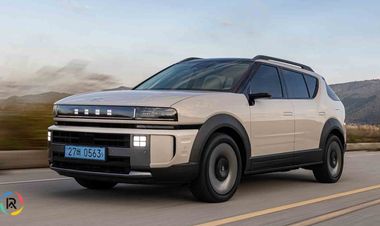Gothenburg, Sweden- Volvo Truck., is accelerating its shift towards sustainability by increasing the use of low-CO2-emission steel in its trucks. Having pioneered the introduction of this eco-friendly steel in electric trucks in 2022, Volvo is now extending its application to all driveline components.
The steel, produced by Swedish manufacturer SSAB and branded as SSAB Zero, is made from recycled materials and relies on fossil-free electricity and biogas for production. This process cuts CO2 emissions by an impressive 80% compared to traditional fossil-based steel production.
Starting next year, around 12,000 Volvo FH and FM trucks will feature frame rails made from this low-CO2-emission steel, resulting in a reduction of 6,600 tons of CO2 emissions. As availability grows, Volvo plans to incorporate this steel into more truck models and components, while also seeking lower-emission alternatives for other materials in its vehicles.
Volvo is also planning to replace other materials in its trucks with lower emissions alternatives.
Mr. Jan Hjelmgren, Senior Vice President Product Management and Quality, Volvo Trucks, said, “This is an additional step towards our zero emissions vision. Steel is one of the main materials in our trucks. We are also looking to exchange other materials, such as aluminium and plastic, to low emission alternatives. We are proud to lead the way in the industry when it comes to sustainable material in our trucks.”
With nearly half (47%) of a Volvo FH diesel truck made of steel, Volvo is ramping up efforts to reduce emissions by using low-CO2 steel. Steel accounts for 44% of the truck’s CO2 output during production, so the potential for reducing emissions is significant.
In collaboration with multiple suppliers, Volvo is integrating low-CO2-emission steel alongside traditional and recycled steel, helping the company move toward its 2040 net-zero supply chain target, aligned with the Paris Agreement.
“We are continuously striving to further minimize our climate footprint. We are also moving towards greater circularity in both our operations and our trucks. Many of our factories, transports and dealers are today running on renewable energy,” says Jan Hjelmgren.
The main materials in a Volvo FH diesel truck are steel (47%), cast iron (26%), polymers (11%) and aluminium (8%). They stand for around 44%, 26%, 14% and 8% of the CO2 emissions from the production (cradle to gate) out of the total 21 tons CO2 Equivalents for the Volvo FH diesel.
Low-CO2-emission steel is a steel with a significant reduction of CO2 (80% or more) from cradle to gate.







